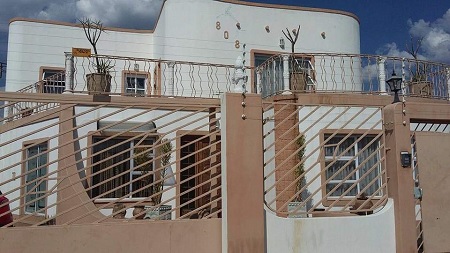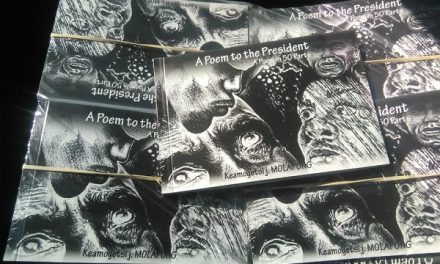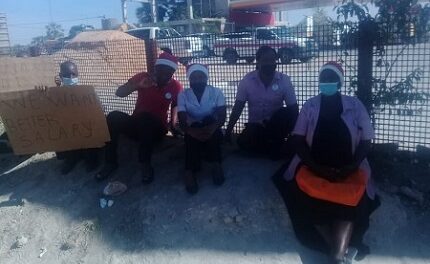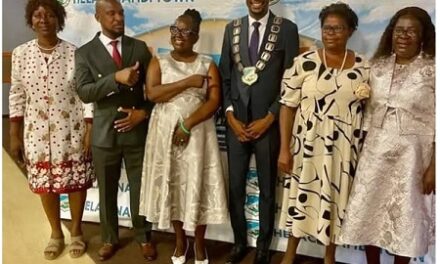By Victor Angula /
In a long-running dispute between the First National Bank of Namibia (FNB Namibia) and a resident of Windhoek over a house on Erf 808 Aries Street, Dorado Park, it appears now that the said house was sold at an “auction” – and of all people, it was FNB who bought it.
This is despite the fact that all along FNB has claimed that the house belonged to it ever since the day FNB inherited the loan book of Swabou Bank Limited in 2003.
It thus is unclear why FNB would buy a house at an auction where the sale of the said house was initiated by FNB who claimed to be the owner.
This may seem to show some kind of weird and unlawful practices in which employees of FNB make things difficult for house owners to pay off their mortgages, with the aim of having the bank repossessing the same houses and have them sold at auctions where the same commercial bank would buy the same houses for peanuts just to resell the houses again to people for huge profits.
The story starts with Swabou (a building society established by white Namibians before Independence,) which in 2001 merged with City Savings and Investment Bank (a commercial bank established by black politically connected Namibians after Independence) to create a commercial bank called Swabou Bank Limited – which two years later was taken over or merged with FNB Namibia.
Mrs Maria Gasenosiwe Guimaraes built her house on Erf 808, Aries Street, Dorado Park, with six bonds (housing loans) received from City Savings and Investment Bank, Swabou Bank Limited, and Swabou Investments (PTY) Limited. The loans totaled N$1,146,557.
The document of the merger, in 2003, between Swabou Bank Limited and FNB Namibia indicated that FNB was taking over everything that belonged to Swabou Bank, except for the “loan book”.
But in what seems to have been an unprofessional conduct of business on the side of the bankers and institutions mandated to provide oversight on banking institutions, the people who had mortgages (house loans) with Swabou Bank were made to make their payments at FNB, while Swabou quietly died and ceased operations.
Yet information at the Business and Intellectual Property Authority (BIPA) indicates that there is an entity on its system known as “Swabou Investments (PTY) Limited” which deals in the market of property, insurance and other related activities.
And indications are that this Swabou Investments (PTY) Limited shares the same bank account with FNB Namibia (its shareholder), and that the entity is registered as belonging to someone (Beneficial Owner) who is an employee of FNB Namibia or FirstRand (the parent company of FNB), and that this Swabou Investments (PTY) Limited ‘operates’ from offices of FNB Namibia.
Thus Guimaraes was instructed to pay her monthly instalments at the FNB branch in Ausspannplatz “on behalf of Swabou Bank Limited,” only to be sued by Swabou Investments (PTY) Limited/FNB Namibia for non-payment.
“The first summons started in 2010, [saying] that I was in arrears of N$54 000.00,” Guimaraes says.
“I only realised in 2019 that I was never in arrears. Instead, my money was reversed and stolen by the bank officials within FNB since the merger [with Swabou Bank] in 2003, to the amount of more than N$500, 000.00.”
From the calculations done by three accountants, it was verified that from the day of the first loan in 2001, up until when the legal wrangling started with Swabou/FNB over a total loan of N$1,1 million, Guimaraes had paid some N$3,9 million in instalments to Swabou/FNB.
“Yet FNB or Swabou still claims that I owe them 1 million. How I don’t know,” the distraught Guimaraes states.
“The bank got a judgement and Court order issued on a Sunday in 2018, and two days thereafter a writ on 24 April 2018. Through these dubious deals a Court order was issued to make my house executable.
“I find it highly questionable how the bank claims to have now purchased my property at a public auction when no such auction took place due to the Deputy Sheriff not providing the required conditions, and could not even respond to questions asked by the reporter of NBC TV,” says Guimaraes.
Thus after years of legal wrangling between Guimaraes and lawyers representing both Swabou Investments (PTY) Limited and FNB Namibia, a default judgement was given by the High Court, in which it was ordered that Guimaraes house should be sold on auction.
While Fisher, Quarmby & Pfeifer Attorneys have all along been the legal representative of Swabou/FNB, it was the same Fisher, Quarmby & Pfeifer Attorneys who served as the “conveyancing firm” when the house was said to have been bought by FNB at an auction which on 12 August 2024 was abandoned .
On a City of Windhoek’s “Application for Building Compliance Certificate” document dated 27 August 2024, a certain Mr Andrew Abrahams (an employee of FNB) appeared as the “person to be contacted (to give access to the property)”.
When contacted by Omutumwa, Mr Abrahams said telephonically that he would respond to questions by email, but neither him nor FNB Namibia’s spokesperson Ms Genevieve Eagleton responded to emails sent to them, neither did they pick up calls on their mobiles or offices.
By all indications, Guimaraes is a victim of a society captured by commercial banks to such an extent that even the courts have failed her.
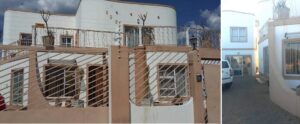
In the photo: The house on Aries Street, Dorado Park, Windhoek, which is the bone of contention between a hapless resident of Windhoek and a multi-national commercial bank.

